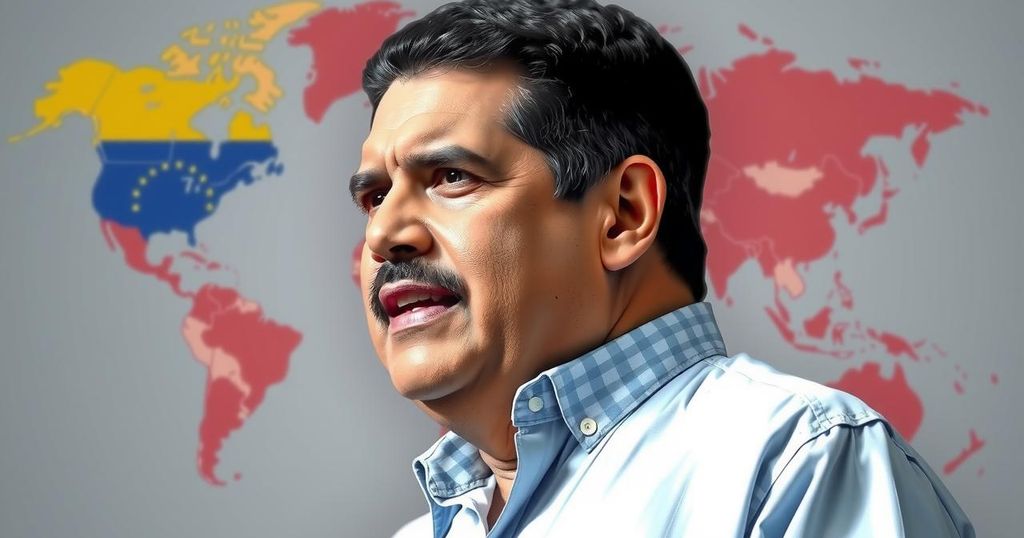Nicolás Maduro has been sworn in for a third term under allegations of a stolen election. The international community, notably U.S. leaders, has reacted with new sanctions. Experts stress the importance of a united opposition and coordinated international support to promote democratic transition in Venezuela, emphasizing the need for effective sanctions that account for the regime’s internal dynamics and pressures.
Nicolás Maduro has been inaugurated for a third six-year presidential term, following an election marred by allegations of fraud. Reports from the opposition indicated that Edmundo González, the opposition candidate, garnered more votes. In reaction to the election outcome, Maduro’s regime has intensified its crackdown on dissent, evidenced by the detention of opposition leader María Corina Machado. As Maduro solidifies his hold on power, international reactions include new sanctions from the Biden administration targeting Venezuelan officials. The prevailing question concerns the future of democracy in Venezuela amid widespread rejection of Maduro by both domestic and international actors.
Analysis from experts highlights that numerous Latin American leaders now oppose Maduro, including figures from different political ideologies, illustrating a rare regional consensus against his re-ascendancy to power. Notably, Chile’s President Gabriel Boric and other leaders have explicitly called Maduro’s government a dictatorship. While some nations still had representatives attend the inauguration, this does not indicate support for Maduro, as the broader sentiment remains one of rejection.
In light of the increasing isolation of the Maduro regime, experts emphasize the necessity for the United States to employ both punitive measures and incentives to cultivate a conducive environment for a democratic transition. Current sanctions from the Biden administration, however, are viewed as insufficient to dismantle Maduro’s control, with calls for a more robust approach that considers the realities on the ground to avert further state repression. The Venezuelan opposition, too, faces its own challenges, especially the need to unify and develop a coherent strategy leading into upcoming elections.
The impact of these developments extends beyond Venezuela, as key regional actors engage in a coordinated diplomatic effort to support the democratic aspirations of Venezuelans while navigating the complex realities of sanctions and repression.
The election that resulted in Maduro’s third term was regarded by many observers as deeply flawed, with allegations of significant irregularities influencing the outcome. This situation has triggered widespread protests from the opposition, who claim a legitimate electoral victory in Edmundo González. The international community, especially the Western Hemisphere leaders, are observing these events closely, with increasing pressure on Maduro’s regime amid reports of human rights violations and political suppression.
As the political landscape in Venezuela remains precarious, Maduro’s re-election amidst claims of fraud has deepened the crisis of legitimacy in the country. The united front against his regime from various Latin American leaders presents a unique opportunity for diplomatic intervention, yet calls for a more decisive and nuanced approach from the United States to effectively support a transition towards democracy. The opposition’s capacity to coalesce around a single strategy remains a pivotal factor in the struggle for Venezuelan democracy moving forward.
Original Source: www.atlanticcouncil.org






